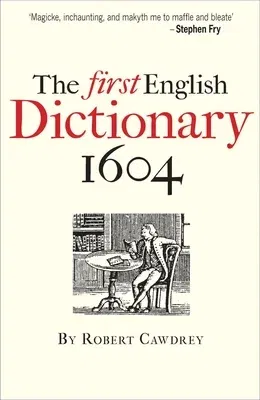English is one of the most complicated languages to learn, and its
constantly evolving vocabulary certainly doesn't help matters. For
centuries, men and women have striven to chronicle and categorize the
expressions of the English language, and Samuel Johnson is usually
thought to be their original predecessor. But that lineage is wrong:
Robert Cawdrey published his Table Alphabeticall in 1604, 149 years
before Johnson's tome, and it is now republished here for the first time
in over 350 years.
This edition, prepared from the sole surviving copy of the first
printing, documents Cawdrey's fascinating selection of 2,543 words and
their first-ever definitions. Cawdrey subtitled his dictionary "for the
benefit of Ladies, Gentlewomen, and other unskilled folk," for his aim
was not to create a comprehensive catalog, but rather an in-depth guide
for the lesser educated who might not know the "hard usual English
wordes, borrowed from the Hebrew, Greeke, Latine, or French." Each entry
reveals an intriguing facet of early modern life and the cultural mores
of the time. There are familiar terms--"geometrie" was defined as "the
art of measuring the earth," and a "concubine" was described as a
"harlot, or light huswife"--and amusingly idiomatic definitions:
"prodigall" is "too riotous in spending," while "hecticke" is "inflaming
the hart, and soundest parts of the bodie."
John Simpson, chief editor of the Oxford English Dictionary, contributes
an insightful introduction that recounts the eventful life of Robert
Cawdrey and his mission to become the first English lexicographer. A
treasure-trove of linguistic oddity and history for the bibliophile,
budding lexicographer, or obsessive Scrabble player, The First English
Dictionary, 1604 reveals the roots of our language in all its eccentric
glory.

